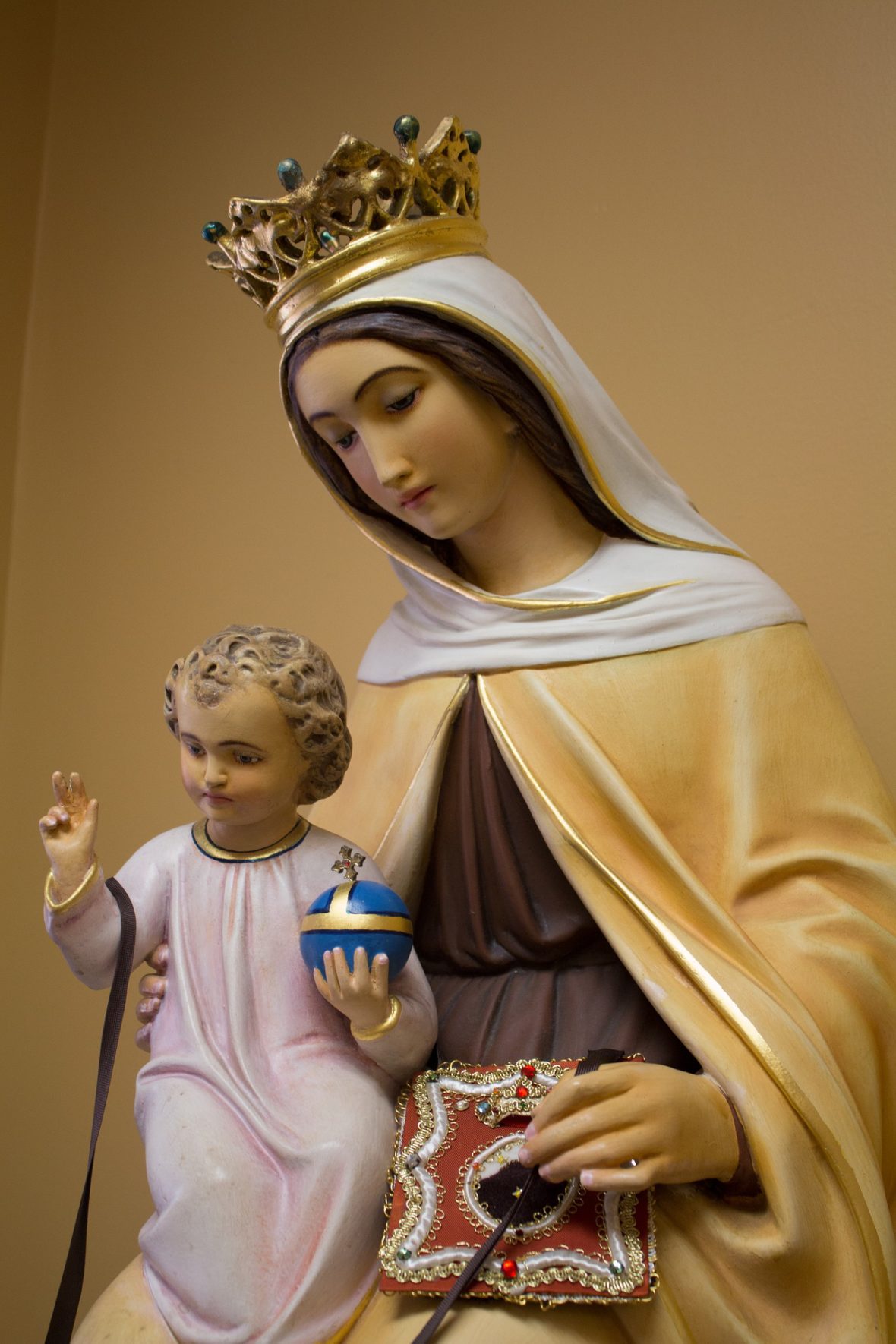In an ongoing string of posts, I have printed excerpts of traditional Catholic tips from Spiritual Masters. The following is such a tip. It was written by Fr. Jacques Philippe in his book, Searching for and Maintaining Peace. Fr. Philippe is an expert on the theology of the Little Way of the French Catholic Carmelite saint, and Doctor of the Church, St. Therese Martin. In this excerpt, following the precepts of the Little Way of St. Therese, Fr. Philippe offers a lovely tip on what to do when you realize you have sinned:
From all that we have just said, there flows a rule of conduct that is very important to keep in mind when we should happen to commit a fault. We certainly must feel sorry for having sinned, ask God for pardon, humbly beg Him to accord us the grace not to offend Him again in this way, and resolve to go to confession at an opportune moment.
Without making ourselves sad or discouraged, we should recover our peace as quickly as possible thanks to graces from on high, and resume our normal spiritual life as if nothing had happened. The more quickly we recover our peace, the better it will be! We make much more progress in this way than by becoming irritated with ourselves!
A very important, concrete example is the following: When we commit some fault or other, under the assault of a trial that seizes us, we are often tempted to grow slack in our prayer life, to not spend, for example, our usual time in silent meditation. And we manage to find good justification for this: “How can I who have just fallen into sin, who have offended the Lord, how can I present myself before Him in this state?”
And we need sometimes several days before we can resume our normal habits of prayer. But this is a grave error; this is nothing but false humility inspired by the devil. We must above all not change our habits of prayer.
Quite the contrary. Where will we find healing for our faults if not close to Jesus? Our sins are a very poor pretext for distancing ourselves from Him, because the more we sin, the more we have a right precisely to approach Him who says: The healthy are not in need of a doctor – the sick are…Indeed I came not to call the righteous, but sinners (Matthew 9:12-13).
If we wait until we are saints to have a regular life of prayer, we could wait a long time. On the contrary, it is in accepting to appear before the Lord in our state of sin that we will receive healing and will be transformed, little by little, into saints.
There is an important illusion that must be exposed: we would like to present ourselves before the Lord only when we art presentable, well-groomed and content with ourselves! In effect, we would like to bypass the need for mercy. But what is the nature of this pseudo-sanctity to which we sometimes aspire unconsciously and which would result in our thinking that we no longer have need of God?
True sanctity is, on the contrary, to increasingly recognize how much we absolutely depend upon His mercy!
To conclude, let us cite a last passage from The Spiritual Combat that recaptures everything we have said and indicates to us the path we should take when we have committed some kind of fault. It is entitled, “What one must do when one receives a wound in spiritual battle!”
When you feel wounded, that is to say, when you feel that you have committed some fault, whether it be from pure weakness or with reflection and malice, do not distress yourself too much over that; do not allow yourself to become chagrined and irritated; but address yourself immediately to God and tell Him, with humble confidence: “It is now, oh, my God, that I can see what I am. For what can one expect from a weak and blind creature like me but wrongdoing and failure?” Stop yourself there and imagine a sharp pain because of your fault.
Then, without becoming troubled, turn all of your anger against the passions that dominate you, principally against those that were the cause of your sin.
Lord, you will say, I could have committed a much worse crime if by your infinite goodness you had not saved me.
Afterwards, render a thousand thanks to the Father of Mercies; love Him more than ever, seeing that, far from resenting the hurt you just caused Him, He still extends His hand to you, for fear that you will fall again into a similar mess.
Finally, full of confidence, tell Him: “Show me, oh, my God, that which you are; help a humiliated sinner to feel your divine mercy; forgive me all my offenses; do not permit me to separate or distance myself from You, however little; fortify me with Your grace, so that I may never offend You again.”
After that, don’t try to determine whether God has pardoned you or not. That would be to upset yourself uselessly. It is a waste of time. It stems from pride and the illusions of the devil who, by disquieting your spirit, seeks to harm and torment you.
Rather, abandon yourself to His divine mercy and continue your exercises with your usual tranquility as if you had hardly committed any fault. Even should you have offended God several times in a single day, never lose confidence in Him, practice what I tell you, the second, the third and the last time as the first….
This way of combating the devil is the one that he fears the most because he knows that it pleases God very much and it always throws him into a great confusion, seeing himself overcome by the very person he was able to conquer so easily in other encounters.
So, if a fault that you may unfortunately have committed causes you to be troubled and discouraged, the first thing that you should do is to try to recover your peace of soul and your confidence in God…
To finish this point, we would like to add a remark: It is true that it is dangerous to do wrong and we must do everything we can to avoid doing wrong. But let us recognize that, given the way we are made, it would be dangerous for us to do only good!
In effect, marked by original sin, we have a deeply rooted tendency toward pride that makes it difficult for us, and even impossible, to do good without appropriating a little of it for ourselves, without attributing it, at least in part, to our abilities, our merits or our sanctity! If the Lord did not permit us, from time to time, to do wrong, to acquire some imperfection, we would be in great danger!
We would quickly fall into presumptuousness and contempt of others. We would forget that everything comes freely from God.
And nothing precludes true love more than this pride. In order to protect us from this great evil, the Lord sometimes allows a lesser evil which consists in committing some kind of fault, and we should thank Him for that, because without this safety net we would be in great danger of being lost!
St. Therese, pray for us.
Our Lady, Queen of Carmel, pray for us.
Have a good day!
•SCF
•Image: Our Lady of Mount Carmel, Queen of Carmel






